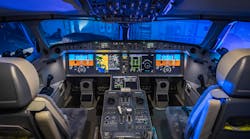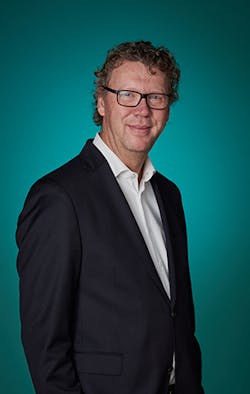An NXP Semiconductors spinoff is taking its first steps as an independent supplier of standard products like discrete components, logic, and power switches.
Nexperia, as the new company is called, is composed of the NXP's former standard products business. Last year, the Dutch chip maker sold the division to Chinese investors to sharpen its focus on mixed-signal electronics for security, embedded computing, and connected cars.
Based in Nijmegen, Netherlands, the company has around 11 thousand employees, a fourth of NXP's entire workforce. The former vice president and general manager of the standard products business, Frans Scheper, is the chief executive.
Nexperia said that it would produce around 85 billion devices every year, ranging from transistors and logic to MOSFETs and diodes, as well as devices that protect signals from electromagnetic interference. Car manufacturers are among its biggest customers and most of its products are rated to endure severe heat and vibrations.
The company sells over 10,000 different parts, which it makes at two front-end manufacturing facilities in Manchester, UK, and Hamburg, Germany. It also operates three plants for assembling and packaging semiconductor wafers in China, Malaysia, and the Philippines.
The Nexperia spinoff was first announced last year when NXP sold the business for $2.75 billion to Chinese investors including Wise Road Capital and JAC Capital, also known as Beijing Jianguang Asset Management. JAC Capital also bought NXP’s radio frequency chip business in 2015 and bootstrapped it under the brand Ampleon.
The sale came months before NXP agreed to be acquired by Qualcomm for around $47 billion, in what stands as largest deal in the history of the semiconductor industry. But in the view of financial analysts, the Dutch chip maker might be forced to offload another business to appease regulators in China.
China's top regulator could pose the most significant threat to the acquisition, according to a recent report from the Capital Forum, an investigative research firm that follows competition policy. It could require Qualcomm or NXP to sell off businesses as a condition for approving the deal, which could be seen as a threat to China's semiconductor ambitions.
Major regulators in the United States and Europe have grown increasingly suspect of technology deals with Chinese investors, whose government ties are notoriously difficult to pin down. However, the Nexperia deal received approval from both the United States the European Commission last year.
Nexperia is starting out with a number of large customers for its small and efficient standard products, including Delphi Automotive, Apple, Delta, and Siemens. Most are manufacturers of smartphones, factory equipment, wireless infrastructure, and personal computers.
The company said that going independent will help it innovate faster than it could as part of a large corporation. Nexperia is “retaining all the expertise, manufacturing resources and key personnel of the former NXP division, while bringing a new focus and powerful commitment to these product areas,” it said in a statement.



